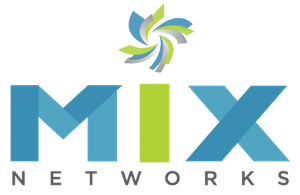A private branch exchange, or PBX, is a telephonic switching system that serves private organizations. PBX’s allow for multiple stations to communicate with one another within an organization, as well as route calls into the system to the appropriate party. PBX’s were once the domain of larger organizations because they were too cost prohibitive for smaller organizations to install. With a Hosted PBX system, a PBX system that is hosted over the internet, these cost prohibitions no longer exist, thus allowing companies to implement PBX systems at a far lower cost. Simply put, a hosted PBX system is everything a business needs for their communications needs at a fraction of the cost.
History of the hosted PBX system
In the early days of telecom, switch boards made use of corded circuits. These types of switchboards can be seen in period pieces about the 1950’s and 1960’s where operators manually transfer calls to the appropriate destination. Private branch exchanges were already in use for large organizations. For example, one of the most famous and recent portrayals of a manual PBX system is featured in the Netflix original series The Crown, in which they show an operator for the queen’s private branch exchange field calls from the outside and transfer those calls to the appropriate phone within the palace.
These early PBX systems were expensive, not least because of the cost of labor. Automation eventually took hold and lowered the cost of operating a PBX system within an organization, but these still tended to be expensive. Thus, only the largest organizations made use of PBX systems. Since the advent of the internet, however, the cost and implementation of a PBX system has dramatically fallen. This is because IP PBX systems — PBX systems managed via internet protocol — have done to traditional automated PBX systems what they had done to manual PBX systems.
How does a hosted PBX system work?
Hosted PBX systems reduce costs by managing the PBX system from a singular location. This means that a hosted PBX provider hosts (or manages) the PBX system for you rather than having to install and manage a wholly separate system. Hosted PBX systems can be integrated with existing phone systems, or can replace them altogether. More interestingly, they offer a competitive advantage over traditional automated PBX systems because they can be used with any device that has access to the internet, including cell phones, tablets, laptops, and desktop computers. Incoming calls into an organization’s PBX system are managed over the cloud by the provider’s server, and assigned IP addresses to reach the correct destination.
What are the benefits of a hosted PBX system?
The first and most obvious advantage of a hosted PBX system is cost. Because organizations no longer need to hire dedicated staff to manage their PBX, and because the PBX system itself is hosted over the cloud, the cost of a hosted PBX system is far less than that of a traditional PBX system. Initial costs, meaning those costs associated with installing and setting up a PBX system, are also lower because the whole system is managed by the provider.
Another advantage to a hosted PBX system is the ability to manage work stations from anywhere to anywhere with an internet connection. Employees who work from home can just as easily be included in the hosted PBX system as employees who work in the office. They can also be reached at any device with an internet connection, including cell phones and tablets.
Since geographic location is no longer an obstacle, hosted PBX providers are also equipped to be able to provide local phone numbers in areas where you may not have a physical presence. This is a tremendous advantage for businesses trying to attract local-oriented customers. There are also no limits to how much an organization can scale. As a business grows, a hosted PBX system will grow with them according to their communications needs.
What equipment is needed for a hosted PBX system?
The beauty of a hosted PBX system is the ability to forward calls almost anywhere. Businesses may keep their existing landlines and forward calls from the PBX to their existing phones. They may also forward calls to cell phones, especially if they have employees who work remotely. Another option that saves on cost is to use a VoIP system, which removes the need for a traditional landline and makes a business truly mobile. VoIP systems offer additional functionality as well, and are generally bundled with a hosted PBX service package.
Smartphone apps are expected to be the wave of the future. Most hosted PBX providers offer a smartphone app to allow users to manage and use their hosted PBX from their smartphones. MIX Networks offers an app called UCFone, which gives users all the functionality they need on the go all in one place. Some users may still prefer to make use of Desktop IP Phones, but many people in the industry anticipate that these will see less and less use as mobile applications improve over time.
Are you ready for a hosted PBX system?
Hosted PBX systems lend businesses instant credibility and authority by demonstrating that the business can afford an internal phone system. Whether you are a team of two or a team of two hundred, hosted PBX systems help streamline communications, manage inbound calls, and conduct reporting on use and usage, among many other features. With costs so low, there is no reason a 21rst century business should not have a hosted PBX system in place.






